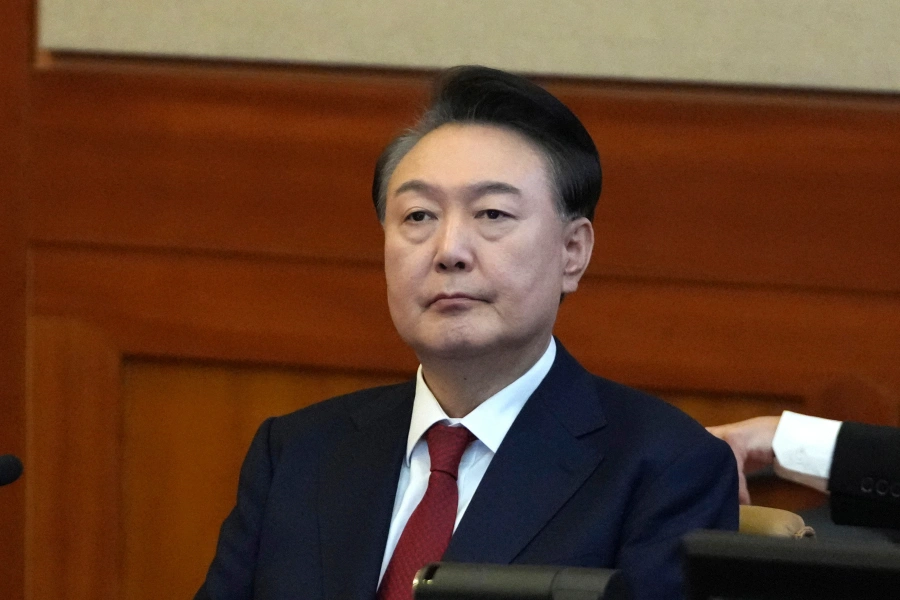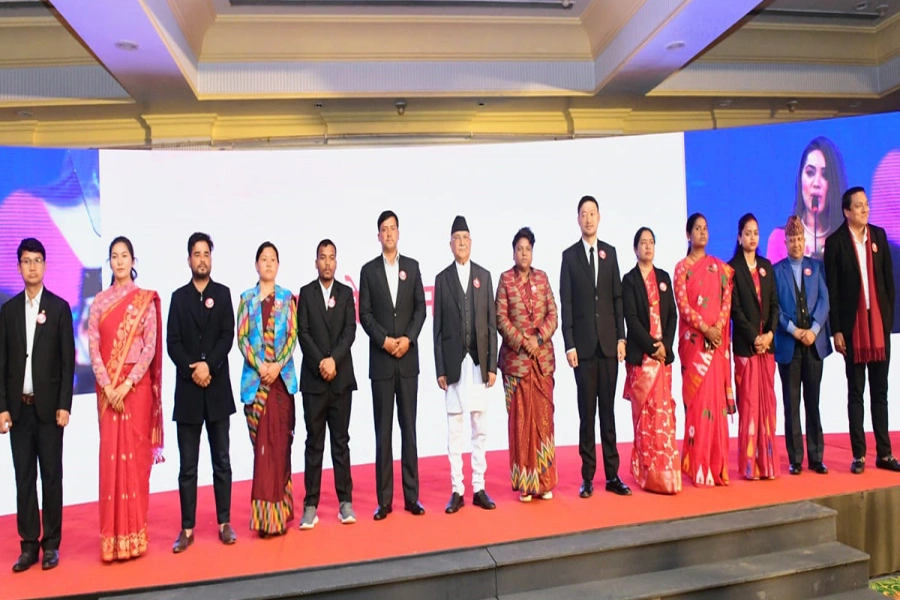For over four weeks now, thousands of teachers from across Nepal have been staging protests in Kathmandu, calling for long-awaited reforms in the education sector. The long-running standoff has made the authorities jittery, while it has threatened to derail the entire academic calendar. On Sunday, the situation had grown tense enough for the police to use force to prevent teachers from entering restricted areas, unleashing widespread condemnation of the government and increased sympathy for the teachers. The teachers' protests have virtually become one of the talking points these past few weeks, with leaders of major political parties individually speaking publicly in support of the agitation, including the permanent Chairman of the Communist Party of Nepal (Maoist Center) and three-time former prime minister Pushpa Kamal Dahal. Several other lawmakers have spoken in favor of the protests in the House of Representatives, urging the government to take the demands seriously and ensure teachers are not mistreated during peaceful protests.
There have been a couple of rounds of talks, but no solution appears in sight. However, after weeks of deadlock, recent talks between government officials and the teachers’ federation have raised hopes. Newly appointed Minister for Education Raghuji Pant called the discussions “positive,” though some issues still need to be resolved. The teachers’ representative, Laxmi Kishor Subedi, also acknowledged progress but insisted the protest would continue until a final agreement is signed. Monday's talks continued late into the night, and it was agreed that an agreement would be signed on Tuesday. The two sides sat for another round of talks on Tuesday evening. By the time this editorial was written, the talks between the government and the representatives of the agitating teachers were still underway. There are expectations that this round of talks will resolve the protests, as the two sides have reportedly been quietly working on a draft agreement for the past few days. The protest has already delayed the evaluation of SEE answer sheets and postponed Grade 12 exams. Tens of millions of students are deprived of their constitutionally guaranteed right to education. Both the government and the agitating teachers must waste no time in narrowing down the differences in the broader interest of children's education. If the deadlock continues, it will disrupt the start of the new academic session, affecting millions of students and their families. Parents are growing anxious, while students are stuck in limbo and teachers are worn out. The situation has called for all sides to act quickly to avoid further damage. Fulfilling all 22 demands from the teachers will not be easy financially. The Ministry of Education estimates that meeting these demands could add an extra Rs 65 billion to the government’s spending, nearly 50% more than the current teachers’ salary bill. With the government already allocating Rs 203.66 billion to the education sector this fiscal year, the financial burden will be heavier. But there are some demands which may not have huge financial or cost implications. Such demands may be addressed immediately.
Invigilator misbehaves with female students accusing her of hid...

What is required now is judicious action to address the situation. Teachers must understand the government’s financial limits and be open to solutions. The government, on the other hand, must honor its past promises and stop using force against educators. Schools or the education sector are no battleground. Teachers are the backbone of society, as their absence can paralyze the entire education system. Ignoring their grievances only worsens the situation. Ending this protest should not be seen as a political win or loss. It should be a collective effort to protect the education of children who have already suffered enough from the disruptions of classrooms due to various factors. Any dialogue for the sake of dialogue makes no sense. Both sides should sit for negotiations with open minds, keeping in mind the significance of the academic calendar and the future of students. The sooner the protest ends, the sooner students can return to classrooms. Teachers, too, can return to their classrooms with dignity, which will be one step forward in strengthening the public education system.



































